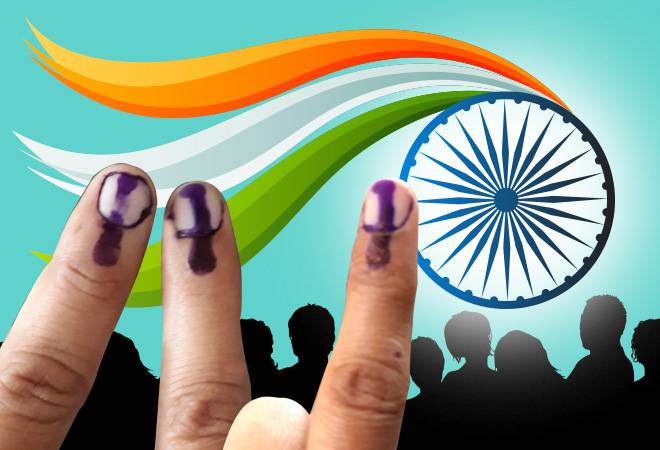NEW DELHI: It is surprising that Rahul Gandhi and his advisors are unaware that for several decades, there has been a provision in the Army to retain graduate youths in short service for only five years.
For the first time since Independence, there is an attempt to completely dismantle the security system and incite and divide society based on caste and religion within the Indian Army. Not just the Congress Party, but major opposition leaders in their rallies are expressing their determination to throw away the new revolutionary recruitment plan for the Army, “Agnipath-Agniveer”. This should be taken seriously because Rahul Gandhi had previously publicly torn up and discarded a proposed bill by the Manmohan Singh government. Now, he needs to save whatever respect he has left in Bihar by taking political refuge with Lalu Yadav, who has been affected by this bill. The important point is that the Agniveer scheme is not a whimsical decision made overnight.
Senior ministers and officials of the Narendra Modi government, along with the three military chiefs and other officers, made the decision after about 254 meetings over two years. The scheme was implemented in June 2022. Since then, 40,000 young people have been trained and deployed at various levels in the Army. In November 2023, 20,000 new Agniveers have been selected for training. In the Navy, 7,355 and in the Air Force, 4,955 Agniveers are being trained and put to work. Any new plan and strategy is studied, reviewed, and revised by the government and the Army. For this scheme too, the Army is preparing reports based on experiences, and its long-term goals and benefits will be considered. However, the threat to destroy the security system like Maoists is inappropriate.
No one can object to criticism of government policies or presenting an alternative plan. When Agniveer was implemented, there were incidents of violence in some areas during the protests sponsored by opposition parties. However, peace was restored after clarifications were provided. Rahul and Company are inciting people by saying that only 25% will be retained in Agniveer after four years, and what will the rest do in the future? The correct situation becomes clear when you talk to former Army chiefs or officials on this issue. This scheme recruits young people aged 17.5 to 21 years who have studied only up to the eighth, tenth, or twelfth grade. They will receive a monthly salary of Rs 30,000, and if they leave the service after four years, they will be given an additional Rs 11 lakh for their future.
In which country in the world, not just India, do young people with such minimal education receive such a salary during their training period and Rs 11 lakh with salary savings if they are recruited at 18 and leave at 22? After this education and training, the young person can pursue higher education or work in other paramilitary forces, police, private security agencies, or private industries. In recent years, many domestic and foreign companies have set up their units in various states in the field of defence production. Agniveers will be very useful to them, and they will receive multiple times the salary. Furthermore, if there is a serious crisis or attack on the border in the future, the Army can immediately call them. The biggest benefit will be that disciplined youth will create a positive environment in society. After all, young people who were in the NCC during their student life play an important role in promoting discipline and a sense of patriotism in various services later on.
It is surprising that Rahul Gandhi and his advisors are unaware that for several decades, there has been a provision in the Army to retain graduate youths in short service for only five years. After this, they take an exam, and successful candidates are retained in the Army for 15 years. Many young people or their families wish for them to leave the Army after five years to pursue other lucrative jobs or start their own businesses. In countries like Germany, a university degree is awarded only after one year of training or significant social work in the Army. On the other hand, the modernization of the Indian Army has accelerated in the last ten years. I have had conversations with officers who participated in the wars with China in 1962, and with Pakistan in 1965 and 1971, or in the battles during Pakistan’s incursions in Siachen and Kargil. They share their experiences of problems caused by difficult routes, limited and old weapons, uniforms, or other logistical constraints at that time. Some of my friends from my student days and NCC are now in positions like colonel, brigadier, and air marshal. Senior brigadier and renowned defence expert R.B. Sharma, who served during the 1962 war, recounts that in Arunachal Pradesh, they had to fight while digging trenches, let alone having roads. Now, there are excellent roads, tunnels, and the most modern weapons, communication equipment, continuous vigilance, and defensive facilities by the Air Force in Arunachal, Ladakh, and Kashmir.
However, during the Lok Sabha elections, denying the Army’s courageous actions in repelling terrorist attacks or infiltrations on the Pakistan border or in driving out China in Ladakh, and raising demands for caste and religious reservations in the Army, negatively affects the morale of the Army. Promising reservations in jobs or falsely and impractically promising to give every poor woman and youth Rs 1 lakh instantly at home violates electoral code of conduct. The Election Commission has also issued a notice to the Congress for spreading misleading propaganda about Agniveer. It seems that sooner or later, the Supreme Court will have to restrict leaders from making false promises.

